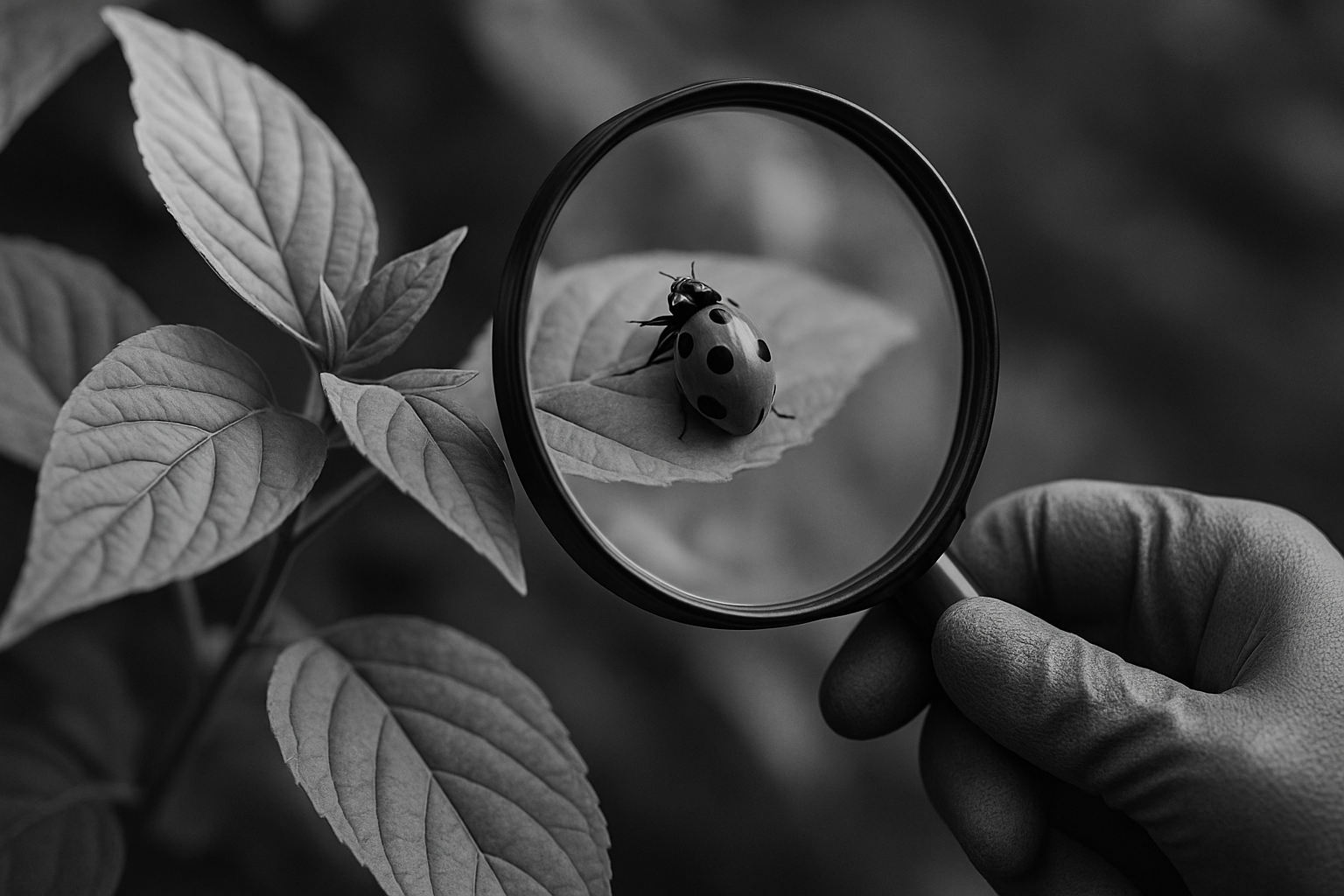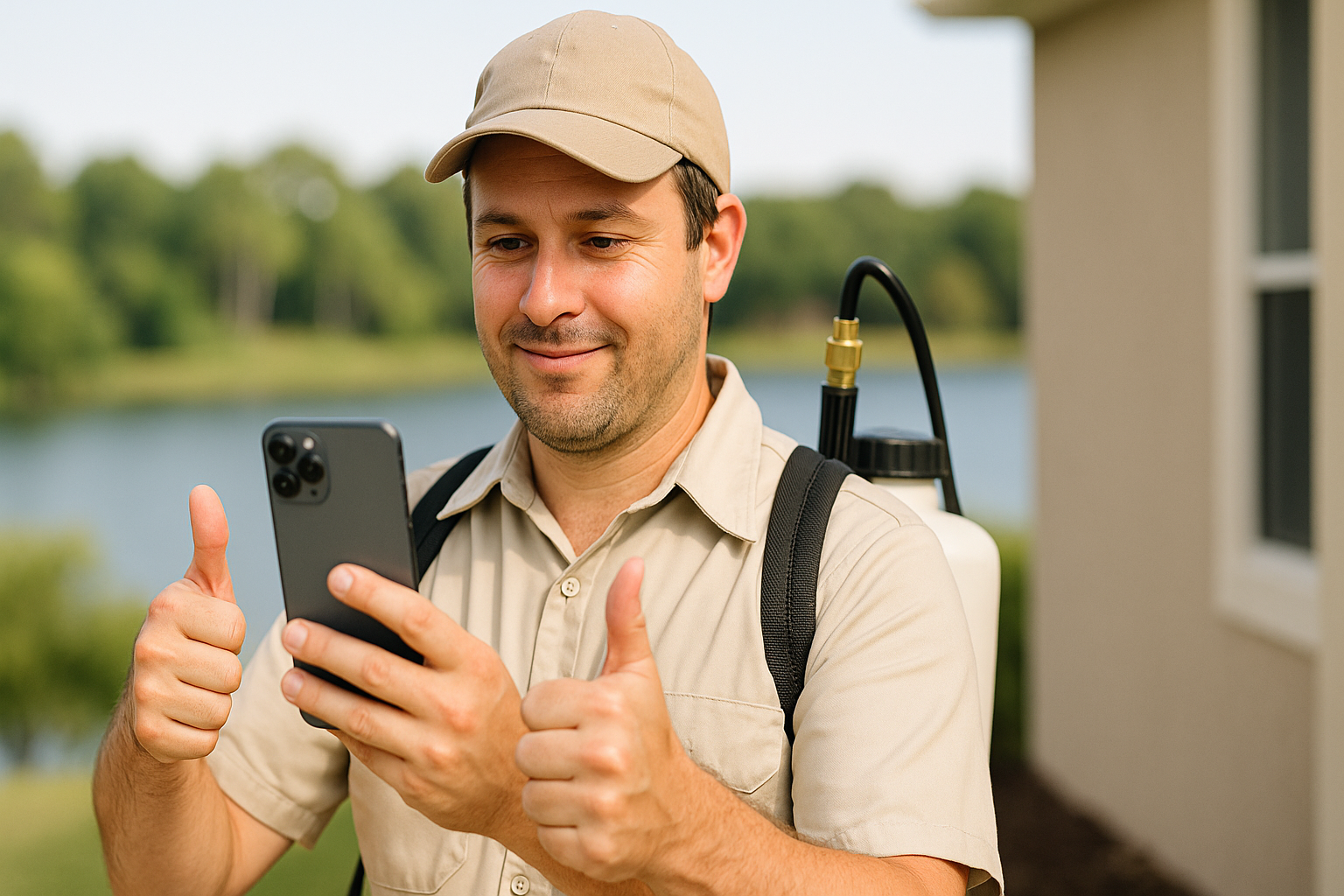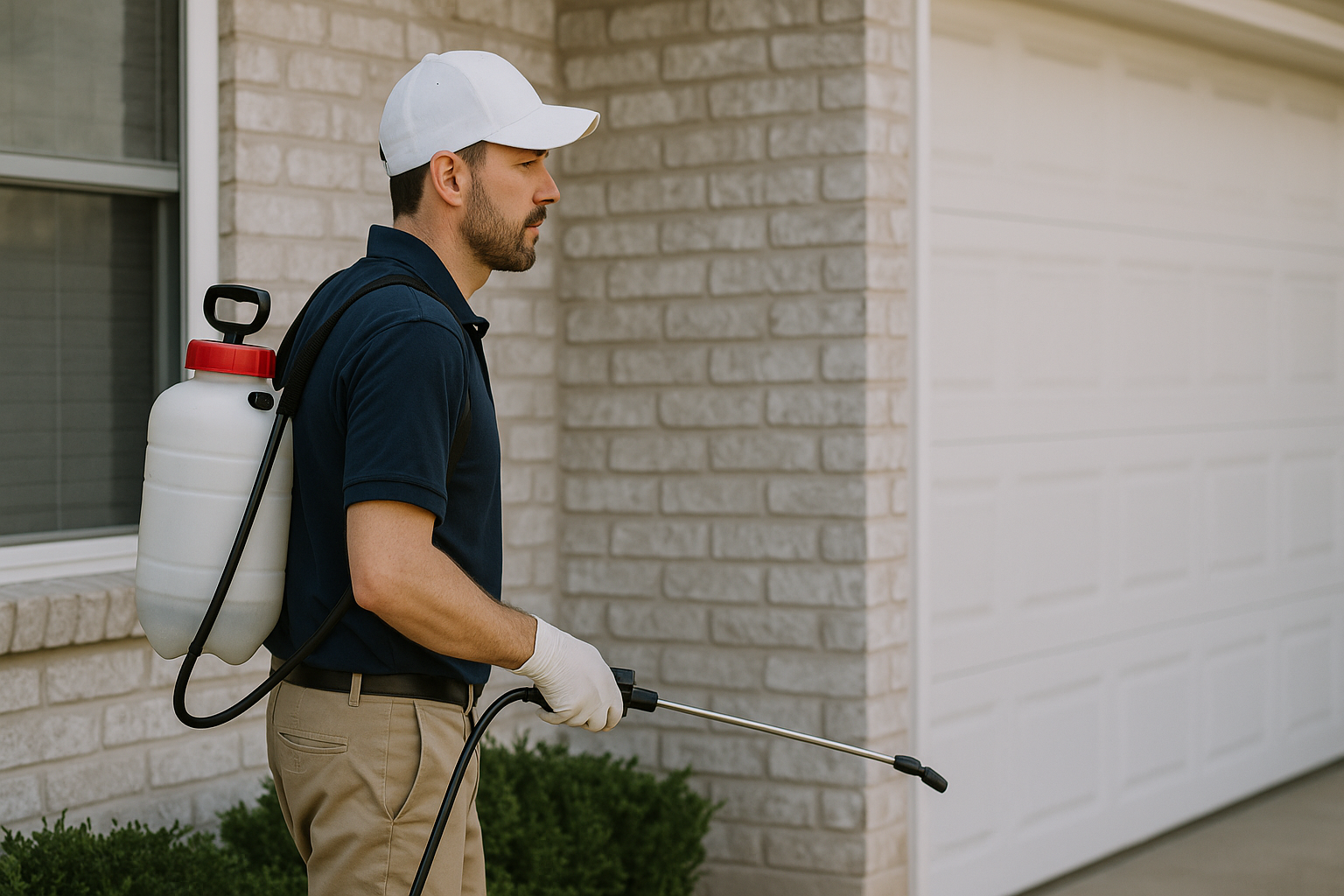Table of Contents
Introduction to Integrated Pest Management / IPM
Dubai is growing fast and has a unique climate. Integrated Pest Management / IPM is the smartest, sustainable way to handle pests here. It blends several techniques to control pests economically—without relying only on chemicals. It focuses on long-term prevention and management through knowledge, monitoring, and the use of multiple tactics rather than relying solely on chemical pesticides.
The concept emphasizes minimizing risks to human health, beneficial organisms, and the environment. For Dubai’s residential communities, commercial properties, and public spaces, adopting this approach is crucial for maintaining comfort, health, and compliance with Dubai Municipality regulations.
Core Principles of IPM
IPM is built on a foundation of key principles which define its holistic and strategic nature. Understanding these fundamentals helps property managers, homeowners, and pest control professionals implement effective solutions in Dubai’s unique environment.
- Identification: Accurate identification of the pest species and understanding their biology and behavior. This ensures targeted and effective control measures.
- Monitoring: Regular inspection and monitoring to assess pest presence and population levels. This enables timely intervention before infestations escalate.
- Prevention: Implementing measures to prevent pest access, food availability, and breeding sites. This could be through sanitation, structural maintenance, and habitat alteration.
- Thresholds: Establishing action thresholds to decide when control is necessary, focusing on pest populations that cause economic or health damages.
- Control Strategies: Using a combination of biological, cultural, mechanical, physical, and chemical controls as needed to manage pests effectively and sustainably.
- Evaluation: Continuous assessment of control methods to determine efficacy and adapt strategies accordingly.
Educational Diagrams Demystifying IPM
Visual aids are essential in conveying the complex aspects of IPM. Diagrams can illustrate processes such as pest life cycles, monitoring schedules, and control method integration.
| Diagram Name | Purpose | Explanation |
|---|---|---|
| IPM Cycle Flowchart | Illustrates steps from identification to evaluation | Shows continuous management process emphasizing monitoring and evaluation. |
| Pest Identification Chart | Helps recognize common pests in Dubai | Visuals of pests such as silverfish, cockroaches, and termites common to the region. |
| Control Methods Diagram | Displays integrated control tactics | Combines biological, mechanical, and chemical options with their advantages and cautions. |
These diagrams assist users in effectively adopting IPM by clarifying each step and option vividly.
Application of IPM in Dubai
Implementing IPM in Dubai’s unique urban environment requires customized approaches that consider the local climate, regulations, and pest profiles.
Dubai’s hot desert climate encourages specific pest activity patterns. For example, cockroach infestations peak in warmer months, and termite activity can threaten timber structures if left unchecked. The application of IPM takes into account these seasonal trends to optimize monitoring and control efforts.
Commercial and residential properties in neighborhoods such as Downtown Dubai, Dubai Marina, Business Bay, and Arabian Ranches can utilize IPM strategies with emphasis on prevention and minimally invasive chemical use. Integrated methods include:
- Regular inspection and sealing of entry points to reduce pest ingress.
- Proper waste management aligned with Dubai Municipality standards to reduce pest attractants.
- Use of baits and traps as non-intrusive control methods.
- When necessary, the application of approved pesticides by licensed operators following Dubai health and safety guidelines.
These measures are essential for compliance as regulated by Dubai Municipality’s Public Health and Pest Control Section, whose guidelines help ensure safe and effective pest control for all stakeholders. For more information on Dubai-specific regulations and guidelines, visit Dubai Municipality Public Health Pest Control Section.
Benefits of IPM for Homeowners and Businesses
Adopting IPM brings numerous advantages to property owners and businesses throughout Dubai.
- Health Protection: Reduces exposure to toxic chemicals improving the indoor environment for families and employees.
- Environmental Preservation: Minimizes pesticide impacts on non-target species and the surrounding environment, supporting Dubai’s sustainability goals.
- Cost-Effectiveness: Focus on prevention and early intervention decreases long-term pest control expenses.
- Regulatory Compliance: Aligns with Dubai Municipality requirements ensuring avoidance of fines or legal issues.
- Long-Term Solutions: Addresses pest problems sustainably instead of short-term eradication.
Businesses in Dubai’s hospitality, food service, real estate, and office sectors particularly benefit from IPM programs, maintaining reputation and customer confidence through stringent pest management.
Regulatory Framework and Compliance in Dubai
Dubai’s regulatory landscape mandates strict adherence to pest management standards designed to protect public health and urban environments. The Dubai Municipality enforces regulations under its Public Health Pest Control Section to ensure that pest control operators follow best practices consistent with IPM principles.
Licensed companies must perform thorough inspections, use approved methods, and maintain detailed records demonstrating compliance with IPM protocols. This specifically governs chemical usage, storage, and application areas, emphasizing minimal environmental harm.
Dubai’s approach promotes continued staff training on IPM techniques and innovations, ensuring that pest control in the city remains effective and responsible. Residents and businesses are encouraged to hire certified pest management providers like those listed on Saniex’s Dubai-approved pest control services to guarantee adherence to these standards.
Common Pests and IPM Strategies
The following table highlights key pests commonly encountered in Dubai along with recommended IPM approaches tailored to each pest’s biology and behavior.
| Pest | Description | Integrated Management Strategies |
|---|---|---|
| Cockroaches | Common in humid areas, carrier of pathogens | Maintain cleanliness, remove water sources, use bait stations, seal cracks, target juveniles with growth regulators. |
| Termites | Damage wooden structures, thrive in moist soil | Reduce wood-to-soil contact, moisture control, apply soil treatments and termite baits, monitor regularly. |
| Rodents | Wide spread, damage property and contaminate food | Seal entry points, keep refuse contained, use traps and rodenticides carefully, maintain habitat control. |
| Ants | Intrusive and persistent, often forage indoors | Clean food residues, block trails, treat nests with targeted insecticides, employ baiting strategies. |
FAQ about IPM
What makes IPM different from traditional pest control?
IPM focuses on prevention, monitoring, and combining various control methods to reduce risks and reliance on chemicals, contrary to traditional methods relying mainly on pesticides.
Is IPM safe for children and pets?
Yes, IPM prioritizes low-risk controls and targeted treatments, significantly reducing exposure risks to children, pets, and residents.
How often should properties in Dubai inspect for pests under IPM?
Inspection frequency depends on property type and pest risk but typically ranges from monthly to quarterly assessments to identify and address issues early.
Can I implement IPM myself?
Basic IPM principles such as sanitation and exclusion can be done by property owners, but professional intervention is recommended for thorough monitoring and complex treatments.
Does IPM comply with Dubai regulations?
Following IPM principles aligns with Dubai Municipality’s pest control standards, helping avoid legal issues and ensuring public health safety.
Conclusion and Call to Action
Adopting IPM in Dubai promotes healthier living spaces, environmental stewardship, and regulatory compliance. By prioritizing education, monitoring, and diverse control methods, stakeholders can effectively manage pests with minimized harm. Embrace this sustainable path to pest management to safeguard your property and community.
For certified and Dubai-focused pest control services fully aligned with IPM principles, visit Saniex’s professional pest control offerings. Take the next step towards safer and smarter pest management today.
Deep Dive into IPM Practices in Dubai
Integrated Pest Management / IPM is now the most effective, eco-responsible approach to pest control. This is crucial in Dubai’s dense, urban setting. Local rules from Dubai Municipality and DHA make sure IPM protects public health and the environment.
IPM is not just a method but a philosophy that combines multiple pest control strategies tailored to specific contexts, drastically reducing the reliance on chemical pesticides. This is critical in Dubai, where high-density commercial and residential developments — such as Downtown Dubai, Business Bay, and Arabian Ranches — present ongoing challenges to pest management while also demanding the highest standards of hygiene and safety.
Core Principles of IPM Tailored to Dubai’s Environment
IPM starts with knowing the pest and the local conditions. Dubai’s desert climate creates unique pressures—ants, cockroaches, termites, rodents, plus seasonal mosquitoes. That’s why Integrated Pest Management / IPM uses a mix of prevention, monitoring, thresholds, and targeted control.
These core IPM principles guide Dubai-based pest management firms and building managers in designing interventions that comply with local codes and are supported by agencies like the Dubai Municipality’s Pest Control Section. Key principles include:
- Prevention: Focus on structural maintenance, sanitation, and habitat modification to prevent pest entry and breeding. For example, sealing entry points in buildings in Dubai Marina and regular waste management to avoid attracting pests.
- Monitoring and Identification: Routine inspection and use of traps to identify pest species and population levels before any treatment. This proactive monitoring allows targeted strategies rather than reactive blanket spraying.
- Threshold Levels: Action thresholds are established, which means pest control measures are only activated when pest populations reach levels that risk health or property damage, minimizing unnecessary treatment.
- Control Strategies: Use of cultural, mechanical, biological, and chemical controls in an integrated manner. Chemical use is carefully selected to be the least harmful and applied by certified technicians according to Dubai Municipality regulations.
Biological and Environmental Controls: Sustainable Strategies in Dubai
A vital aspect of IPM is the emphasis on biological controls and reducing chemical dependency. In Dubai’s oasis-like urban gardens and green spaces found in Nad Al Sheba or Arabian Ranches, biological agents such as predatory insects or natural pathogens can be introduced to naturally control pest populations.
Environmental management involves modifying the surroundings to make them less hospitable to pests. For instance, improving drainage and reducing standing water in courtyards and communal gardens at residential complexes helps control mosquitoes, a major public health target under DHA guidelines. Pest management companies focusing on IPM in Dubai leverage these insights to enhance safety, especially in food establishments or hospitals where strict MOHAP compliance is mandatory.
Regulatory Framework Supporting IPM in Dubai
Dubai’s commitment to IPM is backed by a robust framework of laws and standards designed to ensure human health and ecological sustainability. Dubai Municipality’s Integrated Pest Management guidelines mandate pest control service providers, such as Saniex operating exclusively in Dubai, to adhere to certified pest risk assessments and documentation of treatment protocols. These align with broader environmental protection strategies championed by the Emirates Authority for Standardization and Metrology (ESMA) and local health authorities.
Additionally, all pesticide applications must comply with the regulations of the Dubai Municipality and require the use of approved products listed under their pest control standards. This ensures that substances harmful to humans, pets, or the local environment are prohibited or tightly controlled. Service providers are also required to maintain rigorous record-keeping and conduct training sessions for technicians to endorse best IPM practices and compliance with the Dubai Health & Safety Code.
Implementing IPM in Dubai Residences and Commercial Properties
For Dubai’s residential communities, especially in high-density areas like Dubai Marina and Business Bay, IPM emphasizes community awareness and participation. Effective pest management relies on educating residents about sanitation, waste disposal, and structural maintenance to reduce conducive conditions for pests.
Commercial properties, including luxury hotels near Downtown Dubai and large-scale office towers in DIFC, implement IPM programs developed in collaboration with certified pest control specialists. These programs are customized based on the business type, pest risk profile, and regulatory standards from the Dubai Department of Economic Development (DED) and Dubai Municipality. Businesses must submit IPM plans and reports demonstrating compliance with Dubai’s health codes during routine inspections.
Benefits of Adopting IPM in Dubai
Applying IPM offers multiple benefits to Dubai’s diverse urban landscape:
- Reduced Chemical Usage: Minimizing pesticide reliance leads to lower chemical residues indoors and in green areas, promoting the health of residents, workers, and pets.
- Cost-Effectiveness: Preventative actions and monitoring reduce the frequency of expensive pesticide treatments and structural repairs caused by pest damage.
- Environmental Protection: By integrating biological controls and habitat management, adverse effects on non-target species are curtailed, supporting Dubai’s sustainability goals.
- Regulatory Compliance: Ensuring pest management plans meet the stringent mandates of Dubai’s authorities avoids fines and supports smooth business operations.
- Enhanced Public Health: Limiting exposure to vectors like mosquitoes and rodents lowers risks of vector-borne diseases in a densely populated environment.
In conclusion, IPM is the cornerstone of effective pest control in Dubai, balancing efficiency, safety, environmental responsibility, and regulatory compliance. Whether managing pests in upscale residential communities in Arabian Ranches or commercial offices in Business Bay, adopting an IPM approach ensures both short-term pest suppression and long-term ecosystem health, aligned with Dubai’s vision for a healthy and sustainable urban environment.





